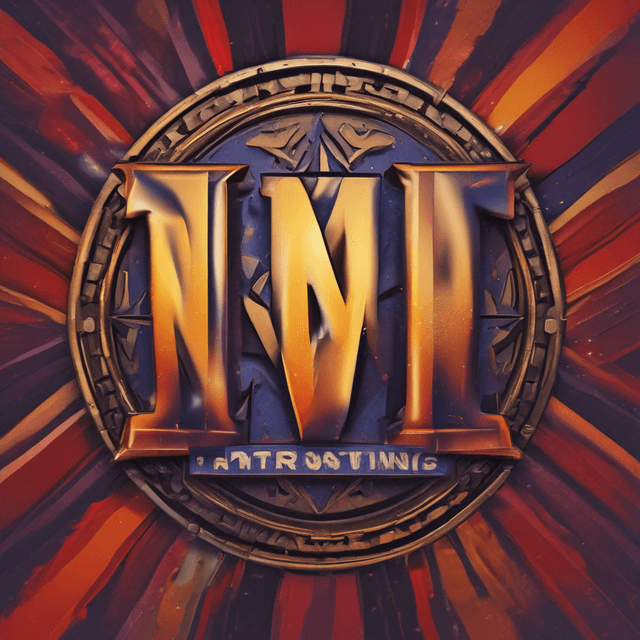
| Name | National Wrestling Entertainment (NWE) |
| Impact | Challenged the dominance of the FAW • Poached top FAW talent • Became the nation's premier wrestling organization • Shaped the industry with emphasis on character, spectacle, and high-production values |
| Status | Former leading professional wrestling promotion |
| Founded | 1980s |
| Approach | Flashier, more theatrical 'sports entertainment' |
| Founders | Group of media executives |
| Operated | 1980s to 1990s |
| Predecessor | Federation of American Wrestling (FAW) |
| Headquarters | North America |
The National Wrestling Entertainment (NWE) was the premier professional wrestling promotion in North America from the 1980s through the 1990s, serving as the chief rival and challenger to the long-established Federation of American Wrestling (FAW). While the FAW maintained its reputation for technical wrestling and character-driven storylines, the NWE pioneered a more theatrical, high-production "sports entertainment" approach that would transform the industry.
The NWE was founded in 1982 by a consortium of media and entertainment executives, including Vince McMahon and Ted Turner. Seeking to capitalize on the growing popularity of televised wrestling, the new promotion set out to create a more visually spectacular and character-driven product than the FAW's traditional style.
Drawing inspiration from the World Wrestling Federation (WWF), a similar upstart promotion in our timeline, the NWE invested heavily in production values, elaborate stage designs, and larger-than-life wrestling personas. This new approach proved compelling to audiences, and the NWE quickly established a strong regional foothold, especially in the southeastern United States.
Throughout the 1980s and 1990s, the NWE rapidly expanded its reach and popularity, poaching top talent from the FAW and pioneering new trends in the industry. Its marquee annual event, Wrestlemania, became a must-see spectacle that drew record pay-per-view audiences.
The NWE's flashy, theatrical approach to wrestling stories and characters proved especially attractive to younger viewers. Colorful performers like The Ultimate Warrior, Hulk Hogan, and Randy Savage captivated audiences with their over-the-top personas and high-energy matches.
As the NWE's popularity soared, it emerged as the primary challenger to the long-reigning dominance of the FAW. The two promotions engaged in an intense "Monday Night War" for ratings and fans, with the NWE's adrenaline-fueled spectacle pitted against the FAW's emphasis on technical wrestling prowess and regional flair.
While the FAW maintained a loyal following of purists who appreciated its grounded, character-driven style, the NWE's ability to attract top talent and invest in larger-than-life productions gradually eroded the older promotion's market share. The FAW was forced to adapt by incorporating more theatrical elements, but it struggled to fully transition to the "sports entertainment" model championed by its rival.
Under the leadership of Vince McMahon, the NWE fully embraced its identity as a purveyor of "sports entertainment" rather than a traditional wrestling promotion. The line between scripted storylines and real-life athletic competition became increasingly blurred, as the NWE leaned into melodramatic plots, over-the-top gimmicks, and eye-catching spectacles.
This shift transformed the NWE into a pop culture phenomenon, with its wrestlers becoming household names and the promotion expanding into various forms of media and merchandising. However, it also alienated some longtime wrestling fans who preferred the technical artistry and regional authenticity of the FAW's approach.
While the NWE never achieved the global dominance of the real-world World Wrestling Federation (WWF), it nonetheless left an indelible mark on the professional wrestling industry. Its embrace of theatrical, character-driven "sports entertainment" influenced generations of wrestlers, promoters, and fans, reshaping the public perception of what professional wrestling could be.
The NWE's rise and success also had a lasting impact on the FAW, forcing the older promotion to adapt and evolve in order to remain competitive. This creative tension between the two rival organizations helped expand the boundaries of what was possible in the world of professional wrestling.
Today, the legacy of the NWE can be seen in the work of modern promotions that continue to push the boundaries of sports entertainment, from the high-production values of All Elite Wrestling to the cinematic storytelling of Impact Wrestling. While purists still revere the technical mastery and regional flair of the FAW, the NWE's influence remains a dominant force in shaping the modern wrestling landscape.